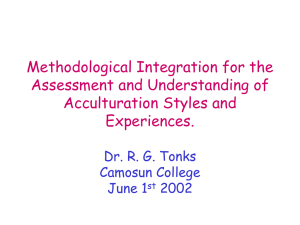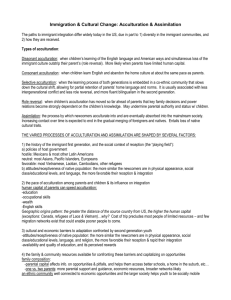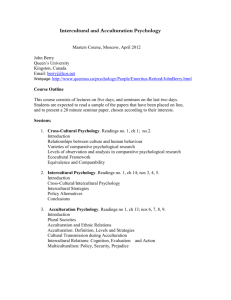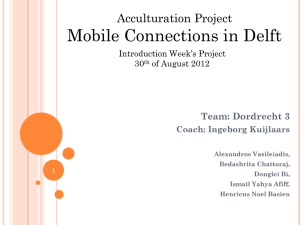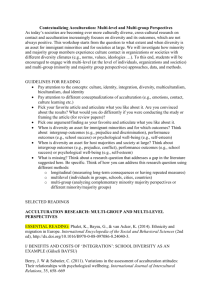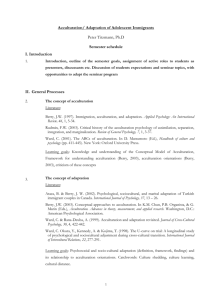reading_list - International Association for Cross
advertisement
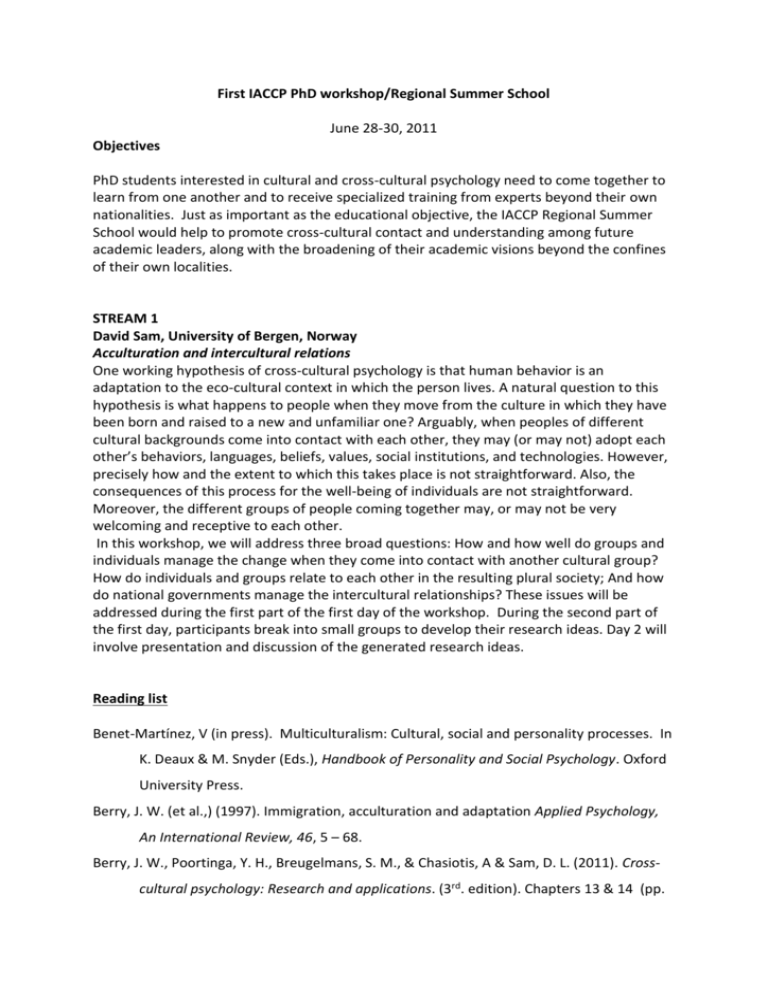
First IACCP PhD workshop/Regional Summer School June 28-30, 2011 Objectives PhD students interested in cultural and cross-cultural psychology need to come together to learn from one another and to receive specialized training from experts beyond their own nationalities. Just as important as the educational objective, the IACCP Regional Summer School would help to promote cross-cultural contact and understanding among future academic leaders, along with the broadening of their academic visions beyond the confines of their own localities. STREAM 1 David Sam, University of Bergen, Norway Acculturation and intercultural relations One working hypothesis of cross-cultural psychology is that human behavior is an adaptation to the eco-cultural context in which the person lives. A natural question to this hypothesis is what happens to people when they move from the culture in which they have been born and raised to a new and unfamiliar one? Arguably, when peoples of different cultural backgrounds come into contact with each other, they may (or may not) adopt each other’s behaviors, languages, beliefs, values, social institutions, and technologies. However, precisely how and the extent to which this takes place is not straightforward. Also, the consequences of this process for the well-being of individuals are not straightforward. Moreover, the different groups of people coming together may, or may not be very welcoming and receptive to each other. In this workshop, we will address three broad questions: How and how well do groups and individuals manage the change when they come into contact with another cultural group? How do individuals and groups relate to each other in the resulting plural society; And how do national governments manage the intercultural relationships? These issues will be addressed during the first part of the first day of the workshop. During the second part of the first day, participants break into small groups to develop their research ideas. Day 2 will involve presentation and discussion of the generated research ideas. Reading list Benet-Martínez, V (in press). Multiculturalism: Cultural, social and personality processes. In K. Deaux & M. Snyder (Eds.), Handbook of Personality and Social Psychology. Oxford University Press. Berry, J. W. (et al.,) (1997). Immigration, acculturation and adaptation Applied Psychology, An International Review, 46, 5 – 68. Berry, J. W., Poortinga, Y. H., Breugelmans, S. M., & Chasiotis, A & Sam, D. L. (2011). Crosscultural psychology: Research and applications. (3rd. edition). Chapters 13 & 14 (pp. 307 – 357). Cambridge: Cambridge University Press. [These 2 chapters will be made available in Istanbul as hardcopy] Motti-Stefanidi, F., Berry, J. W., Chryssochoou, X., Sam, D. L., & Phinney, J. S. (2011 in press). Positive immigrant youth in context: Developmental, acculturation and social psychological perspectives. In A. Masten, D. Hernandez, & K. Liebkind (Eds.), Capitalizing on immigration. The potential of immigrant youth. Cambridge: Cambridge University Press. Ward, C. (2001). A, B, Cs of acculturation. In D. Matsumoto (ed). The handbook of culture and psychology (pp. 411-445). Oxford: Oxford University Press. Recommended books Berry, J. W., Phinney, J. S., Sam, D. L., & Vedder, P. (Eds). (2006). Immigrant youth in cultural transition: Acculturation, identity and adaptation across national contexts. Mahwah, NJ: Lawrence Erlbaum Associates, Publishers. A summary of the book can be found in Berry, J. W., Phinney, J. S., Sam, D. L., & Vedder, P. (2006b). Immigrant youth: Acculturation, identity and adaptation. Applied Psychology: An International Review, 55, 303 – 332. Sam, D. L. & Berry, J. W. (eds) (2006). The Cambridge handbook of acculturation. Cambridge: Cambridge University press.
